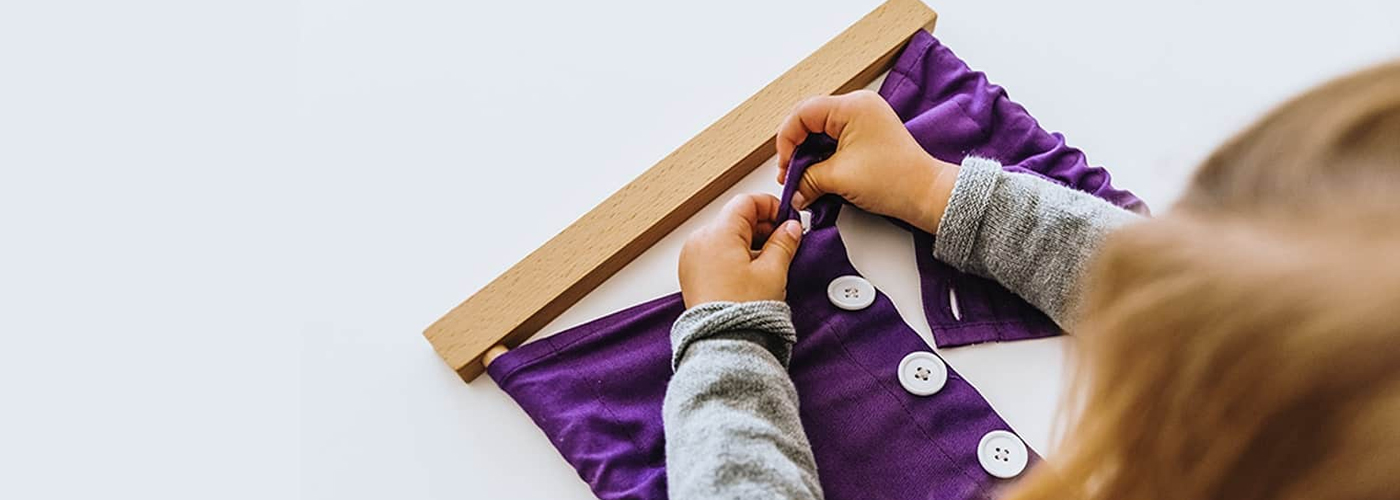Children begin to develop in their environment’s culture and customs and participate in their community between the ages of 3 and 6.
Learn constructive exercises for children, with a personal and psychological value, which will help them to get involved in different jobs with a purpose, thus building their personality.
- 100% online training
- Without schedules, sign up and start now!
- Up to 60 days to complete the course
- IMI Certificate, accrediting 20 hours of training
MONTESSORI COURSES FOR THE STAGE OF 3 TO 6 YEARS
MONTESSORI COURSES FOR THE STAGE OF 3 TO 6 YEARS
Objectives
THEORY
AREAS
INVOLVEMENT OF THE CHILD
PRESENTATION OF MATERIALS
ACTIVITIES
MAIN ASPECTS
Information
- Teaching team with great knowledge and international experience in Montessori classrooms.
- Didactic material: in our virtual campus you will find theoretical and practical content and videos.
The Practical Life exercises are related to the culture and customs of the environment surrounding the child, allowing him to participate in his community.
Practical Life helps children in their growth and development, as these exercises are one of the first activities that the child performs in the prepared environment. They depend on the absorbent mind and are focused on satisfying the natural interests and major developmental needs of children.
Practical Life exercises have a psychological and personal value for the child. They are constructive, not only because they are activities with a purpose, but because they favour the child’s inner development.
The result of these activities is not the main thing for children, but the process, as they are activities that enrich their lives. When performing them, children act according to the interest of their own life, which leads to order and improvement.
This vital need and the child’s strength, which drives him to engage in purposeful work is carried out by physical and mental elements, which are expressed in terms of the child’s personality and are based on the development of his will.
This structure starts to develop, strengthening voluntary movement and leading into ordered movements that are directed by the mind for an intelligent purpose, closely related to the formation of the personality.
Theoretical components:
- Introduction to the Practical Life Area
- The conquest of Independence
- The role of the adult and the prepared environment
Introduction to the practical components:
- The Practical Life areas
- The direct and indirect purposes of Practical Life
- Presentations guide
Practical components:
- Preliminaries exercises
- Caring for the environment
- Caring for the person
- Social development
- Refined movement control
This course is aimed at all those who wish to contribute to the development of the child, helping him achieve his independence.
Recommended to:
- Families and educators since it can be applied in different areas, such as home, schools, nurseries, toy libraries, etc.
- Teachers
- Professionals interested in early childhood education.
- Homeschooler families (homeschooling)
- Educators for toy libraries
- Specialist educators of children with special educational needs
- Mothers and fathers
- Grandparents, families and any other professional profile interested in these stages of development
- Psychologists, Speech Therapists, Pediatricians, Therapists, Neurologists
- Childhood Educators
- Babysitters
- Any interested professional in educational innovation
- Other educational environments
After successfully completing the activities requested at the end of each module, the student will receive a Certificate in digital format, awarded by the International Montessori Institute as the official training center for Montessori pedagogy.
Registering for the course is very simple, you must click on the “Take this Course” button that you will find under the course title.
Once this is done, the shopping cart will appear with the course you have chosen, and you must click on “Proceed to checkout”, or continue browsing our website to add new courses to your cart.
The next step will be to fill in the form with the billing information and choose the payment method: by card or Paypal, and click on “Place order”.
After the registration process, you will automatically receive a welcome email, which will include your access codes so that you can start the course. Remember that you have up to 30 days to complete the course.
Remember that after reading or viewing the content of the lessons you must press the “Completed” button, and thus proceed to the next topic.





